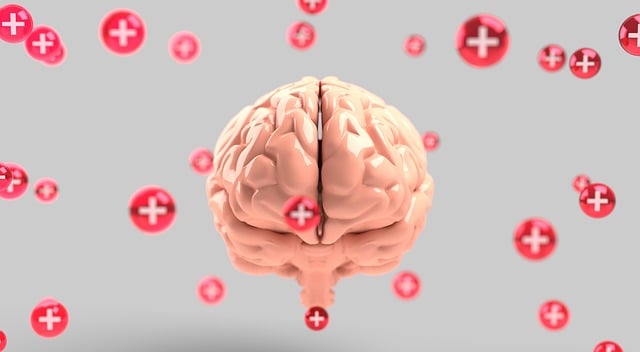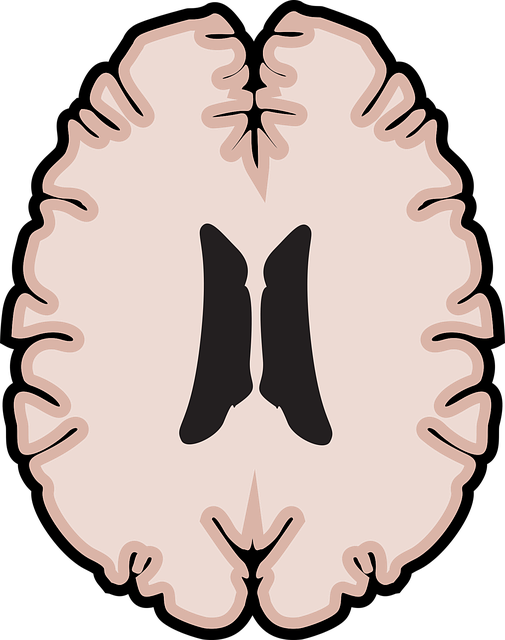The text highlights the pervasive stigma surrounding mental illness in Westminster, hindering individuals from seeking help for conditions like anxiety and depression. It advocates for collaborative efforts between healthcare providers and communities to reduce this stigma. Strategies include educating professionals on non-judgmental care, community outreach programs, and integrating mental health education into school curricula. The emphasis is on early intervention, empowerment through initiatives like Mind Over Matter, and normalizing conversations around mental health through media representation and public awareness campaigns. Key to success are systemic changes, policy advocacy for equal access, and culturally sensitive training for healthcare professionals, as seen in Westminster Chronic Illness Therapy's approach.
Stigma surrounding mental illness remains a significant barrier to seeking help, often exacerbating existing challenges. This article explores comprehensive strategies to reduce mental health stigma, focusing on understanding its profound impact on treatment-seeking behaviors. We delve into effective approaches in healthcare settings and communities, examine the power of education and media representation, and highlight policies advocating for a compassionate society. By drawing connections to Westminster Chronic Illness Therapy and similar initiatives, we offer insights into fostering supportive environments for mental health recovery.
- Understanding Stigma: Its Impact on Mental Health Seeking Behaviors
- Strategies for Reducing Stigma in Healthcare Settings and Communities
- The Role of Education and Media Representation in Challenging Stereotypes
- Supporting Recovery: Policies, Advocacy, and Creating a Compassionate Society
Understanding Stigma: Its Impact on Mental Health Seeking Behaviors

Stigma surrounding mental illness is a significant barrier to individuals seeking help and support for their well-being. This societal misconception often leads to discrimination, isolation, and a reluctance to discuss mental health issues openly. The impact of stigma can be profound, affecting an individual’s willingness to reach out for therapy or counseling, which is essential in managing conditions like anxiety and depression. Many people struggling with chronic mental health issues might avoid seeking professional help due to the fear of judgment or the worry that their problems are not “real” enough to warrant attention.
In Westminster, as with many places, Mental Illness Stigma Reduction Efforts have become crucial in fostering a more supportive environment. Crisis Intervention Guidance and Mind Over Matter principles can empower individuals to challenge these negative perceptions. By educating communities about mental health, we can encourage early intervention and reduce the impact of stigma on those seeking therapy for chronic conditions. This shift in perspective is vital to ensuring that people receive the care they need without delay or hesitation.
Strategies for Reducing Stigma in Healthcare Settings and Communities

Reducing stigma surrounding mental illness is an ongoing process that requires concerted efforts within healthcare settings and communities alike. A significant step in this direction involves education and training for healthcare professionals to ensure they can offer empathetic, non-judgmental care. This includes learning to recognize the subtler signs of mental distress and understanding the impact of stigma on individuals seeking help. By fostering an environment that promotes open dialogue about mental health issues, healthcare providers can create a safe space for patients to discuss their struggles without fear of discrimination.
Community outreach programs play a crucial role in destigmatizing mental illness. Engaging with local groups, schools, and businesses through workshops, awareness campaigns, and support groups helps normalize conversations around mental health. Encouraging individuals who have successfully managed their conditions, such as those availing Westminster Chronic Illness Therapy services, to share their stories can inspire hope and confidence among others facing similar challenges. Additionally, initiatives focused on burnout prevention, confidence boosting, and mood management can empower people to take proactive steps towards improving their mental well-being.
The Role of Education and Media Representation in Challenging Stereotypes

Education plays a pivotal role in breaking down mental illness stigma by providing accurate information and challenging stereotypes prevalent in society. By integrating mental health education into schools and universities, young individuals can develop a better understanding of various conditions, dispelling misconceptions often perpetuated by media representation. Media has long influenced public perception, often portraying mental illness as rare or exaggerated, leading to further stigmatization. Therefore, responsible media coverage that showcases the diverse range of experiences is essential in creating an empathetic society.
Westminster Chronic Illness Therapy advocates for inclusive education and media portrayal to foster mental wellness. Equipping individuals with knowledge about stress reduction methods and risk assessment techniques for mental health professionals can empower them to recognize signs early on. This proactive approach, supported by accurate representation, paves the way for a more compassionate community that offers necessary support to those facing mental health challenges.
Supporting Recovery: Policies, Advocacy, and Creating a Compassionate Society

Stigma reduction efforts for mental illness go beyond individual initiatives; they require systemic change and societal support. Policies that advocate for equal access to quality mental healthcare are paramount. This includes ensuring affordable treatment options, especially in areas like Westminster Chronic Illness Therapy, where resources might be limited. By implementing evidence-based practices and training healthcare professionals with a focus on cultural sensitivity in mental healthcare practice, we can improve patient outcomes and reduce barriers to care.
Public awareness campaigns play a significant role in reshaping public perceptions. Educating communities about the realities of mental health conditions fosters empathy and understanding. Encouraging open conversations and sharing stories of recovery, as per the mind over matter principles, can help normalize these experiences. Such initiatives should be inclusive, considering diverse cultural contexts, to ensure effective communication and engagement.
Mental illness stigma reduction is a multifaceted approach that requires efforts from healthcare settings, communities, education, and media. By implementing strategies such as increased awareness, accurate representation, and supportive policies, we can create a more compassionate society that fosters recovery. Organizations like Westminster Chronic Illness Therapy play a vital role in these initiatives, offering safe spaces for seeking help and challenging the status quo. Together, we can break down barriers and ensure everyone receives the mental health support they need without fear of judgment or discrimination.














